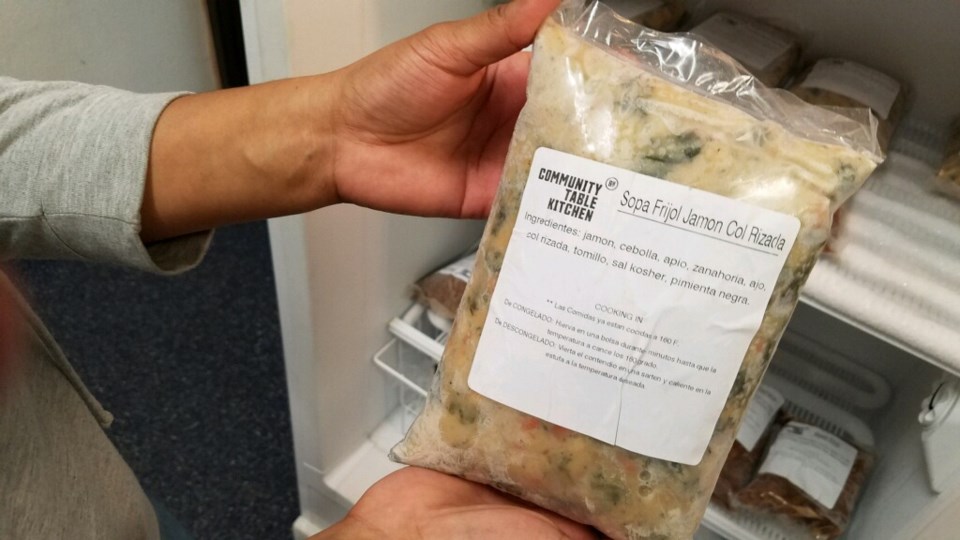Mia Mares dipped her skinny paint brush into a tiny clay pot she made for her father Jose, who works all day planting trees in business parks and homes throughout the metro area. Mares works for a Boulder County tree farm and is among local migrants who work in local fields, greenhouses, tree farms and milking operations to provide for their families.
The Mares family lives at Casa de la Esperanza in south Longmont, which houses migrant families as well as after-school programs for children including robotics and art at its clubhouse. Families at the 32-unit complex can also get nutritious meals provided through a recently awarded $21,000 grant from Boulder County’s Sustainable Food and Agriculture Fund.
The $405,000 fund, for the first time, is being distributed to agencies and nonprofits that help front line farm workers and organizations, including Casa de la Esperanza.
Maria Mares, a four-year resident of Casa de la Esperanza, said her three children are especially fond of the beans and lentils that she gets from the clubhouse freezer and later prepares in their apartment kitchen. The family then enjoys a family meal when Jose comes home.
“They really love the food, especially the beans and lentils. And it’s good for them.” Mares said. “And it helps me because I am very busy the rest of the day.” She looks after six-year-old Mia, four-year-old Estralla and a rambunctious two-year-old Santigo.
The meals come from Bridge House’s Mission Meals program and Community Table Kitchen. The pre-cooked and frozen meals are delivered to food insecure households, said Vanessa Arritola, resource specialist and program coordinator for the Case de la Esperanza Learning Center.
At least 90 meals are delivered twice a month to Casa de la Esperanza clubhouse freezer and include packets of beef stew, chili, beans, kale and lentils The meals are for 2-to-4 people, Arritola said.
The meals take the pressure off of families who are finding it harder to find affordable meals in a time of shortages and inflation, she said. “We are on the outskirts of the city, so families usually take the bus to grocery stores that they can still afford,” Arritola said. “This program is helping our families make ends meet.”
Boulder County invited farmers, agricultural producers, the private sector and nonprofits to apply for the 2022 Sustainable Food and Agriculture Funds, according to a Boulder County news release. The idea was to accelerate and launch environmentally sustainability projects that benefit food and agriculture in the county, the news release states.
This year, for the first time ever, selected projects include programs aimed at frontline farm workers and organizations.
“Climate change devastated frontline community members first and worst,” Commissioner Marta Loachamin said in the news release. “We are excited to expand funding to projects that support our own Boulder County farm workers. The essential workers now face increasing climate challenges including risking temperatures and more days of extreme heat.”
The Sustainable Food & Agriculture Fund is supported financially by Sustainability Tax revenue. In November 2016, voters approved the Sustainability Tax ballot initiative to allocate a portion of sales and use tax revenue to fund sustainability infrastructure and programs, the news release states. From the Sustainability Tax, a portion — $405,000 — was set aside to address the priority needs of local farms and agricultural producers, the news release states.


